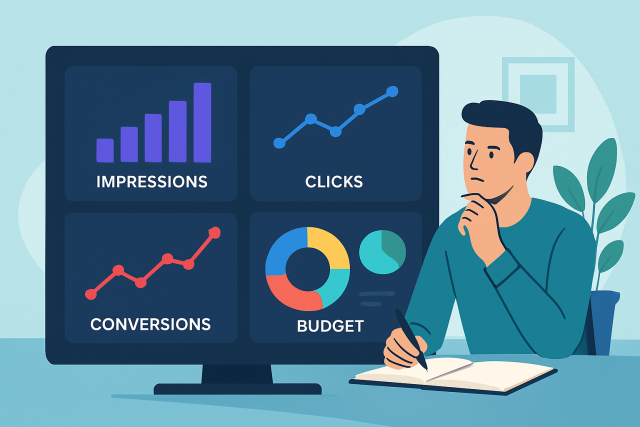SEO for B2B Companies That Actually Drive Leads


SEO for B2B is a real game-changer when it comes to driving growth, and it’s quite different from B2C because it focuses on niche audiences and often tricky, more complex buyer journeys. Good SEO for B2B doesn’t just boost online visibility, it actually attracts those qualified leads who are ready to convert.
Getting to Know SEO for B2B: The Basics and Key Ideas You Cannot Ignore
SEO for B2B is all about fine-tuning your digital assets to speak directly to business buyers rather than everyday consumers. It usually means crafting strategies that are more nuanced because sales cycles stretch longer and decisions often involve multiple stakeholders. The approach covers technical, on-page and off-page tactics designed to align perfectly with the professional search intent found in specific industries
- Organic search: Those unpaid search results that quietly bring visitors to your site because they happen to match exactly what people are hunting for.
- Keywords: The trusty words or catchy phrases that potential buyers tend to punch in when they are on the lookout for solutions.
- Backlinking: Snagging links from reputable sites to give your SEO a nice little boost, like getting a thumbs-up from the internet.
- On-page SEO: Tweaks and tune-ups made right on your web pages, covering everything from content to those sneaky HTML bits.
- Technical SEO: The behind-the-scenes magic that helps search engines effortlessly find their way around and properly index your site.
- Search intent: The real reason someone types in a query, and understanding this is like having the secret map to delivering spot-on content.
- Buyer journey: The typical path a business buyer takes, from their very first 'aha' moment all the way to closing the deal and making that purchase.
How to Nail Effective Keyword Research for B2B SEO Without Losing Your Mind
Finding the right keywords in B2B SEO usually means zeroing in on long-tail industry-specific phrases that carry clear buyer intent rather than just chasing the biggest search volumes. Running competitive analysis can really shine a light on gaps and reveal fresh opportunities.
Start by crafting detailed buyer personas to get a feel for the language your audience uses and the challenges they face. Trust me, it makes a world of difference.
Dive into keyword research tools like Semrush or Moz to uncover terms that not only pop up often but also show strong intent. It is like finding gold nuggets in a haystack.
Take a good look at what your competitors are up to by examining their keyword profiles. This can reveal clever opportunities and gaps waiting to be filled.
Organize your keywords by intent whether they are aiming to inform, guide or prompt action to keep your strategy sharp and focused.
Zero in on keywords that strike the right balance between search volume, difficulty and how well they align with your business goals. It’s a bit of a juggling act but well worth it.

Keyword research dashboard showing industry-specific B2B keywords, search volumes, and keyword difficulty scores.
How to Nail On-Page SEO for B2B Websites (Without Losing Your Mind)
On-page SEO for B2B websites calls for a careful eye on meta tags and header structure. URL formats are also key ingredients to cook up a clear content hierarchy. Toss in some semantic SEO and a dash of thoughtful internal linking.
- Create engaging title tags loaded with the right keywords that click with what users are searching for.
- Craft clear and compelling meta descriptions that nudge readers to take that all-important click.
- Organize your content with header tags H1-H4 to spotlight keywords and keep the flow smooth.
- Weave keywords naturally within the first 100 words and sprinkle them thoughtfully throughout the text.
- Use semantic SEO to cover related ideas and give your content a well-rounded boost in relevance.
- Keep URLs short and packed with key terms that tell users what to expect.
- Focus on top-notch content that directly answers the burning questions B2B buyers have—no fluff, just straight-up value.
Key Technical SEO Elements Every B2B Website Should Nail
Technical SEO is the unsung hero that sets the stage for visibility by ensuring sites load quickly and work well on mobile devices. It also makes them easy for search engines to crawl. Using HTTPS, XML sitemaps and schema markup improves security and smooths the user experience.
- Give your site a speed boost by using caching and compressing files and keeping scripts lean and mean.
- Make sure your site works well on all mobile devices by embracing responsive design and testing it thoroughly.
- Keep your XML sitemap fresh and up to date so search engines can easily find your pages.
- Use robots.txt carefully to guide web crawlers where you want them.
- Secure your site with HTTPS to protect visitors and earn their trust.
- Add structured data markup to give your pages a chance at rich snippets in search results.
- Use canonical tags to handle duplicate content and keep your ranking mojo.
Developing a Content Strategy to Generate B2B Leads with SEO because let’s face it, getting noticed in the B2B world isn’t exactly a walk in the park
A solid B2B SEO content strategy is all about crafting authoritative content that genuinely addresses buyer challenges and gently leads them through each stage of the decision-making journey.
Start by clearly defining your buyer personas and really get to know their pain points, goals and how they prefer to communicate. It is surprising how often this step gets rushed but it’s worth taking the time.
Make sure your content types and topics align with each stage of the buyer journey and move smoothly from awareness to the decision stage.
When brainstorming topic ideas, combine solid keyword research with what your clients genuinely care about so you hit the right notes instead of guessing.
Build comprehensive pillar pages supported by detailed cluster content. This approach gives you the depth to satisfy curiosity and the variety to keep things interesting.
Don’t just set it and forget it. Actively promote your content through social media, newsletters and targeted outreach to boost its reach and impact.

Visual representation of a B2B content strategy mapping buyer personas and content pillars to lead generation.
Building Links and Off-Page SEO Strategies for B2B Companies That Actually Work
Building high-quality backlinks is key for boosting your domain authority and climbing the ranks in B2B SEO. The best strategies revolve around nurturing important industry connections, tapping guest posting opportunities, forging genuine partnerships and getting involved in PR activities.
- Write guest posts for well-respected industry blogs to tap into broader audiences and build genuine connections.
- Build strategic partnerships with like-minded companies to share links in a way that’s a win-win for everyone involved.
- Add your business to trustworthy and relevant industry directories that actually matter.
- Reach out to influencers and thought leaders aiming to earn backlinks through authentic engagement rather than just a quick ask.
- Develop resource pages or handy tools that naturally attract links from peers who find real value in what you offer.
- Roll out PR campaigns that highlight your company’s milestones and cool innovations to catch the eye of the media.
Tracking SEO Success and What It Really Means for Lead Generation
Keeping a close eye on SEO performance involves tracking key metrics like organic traffic, keyword rankings and conversion rates—basically the vital signs of your website’s health. Tools such as Google Analytics and Google Search Console are your trusty sidekicks helping to connect the dots between your SEO efforts and the leads or business outcomes you care about.
| Metric | Description | How to Measure | Impact on Lead Generation |
|---|---|---|---|
| Organic Traffic | The count of visitors arriving via unpaid search results—think of it as your site’s natural buzz | Google Analytics - Traffic reports | Indicates growing brand awareness and hints at more lead opportunities bubbling up |
| Keyword Rankings | Where your target keywords land in search results, basically your spot in the virtual line | Rank tracking tools (e.g., Mangools, Moz) | Climbing higher usually means you’re catching the eye of the right individuals looking for what you offer |
| Bounce Rate | The percentage of visitors who make a quick exit after just one page—the digital equivalent of a drive-by | Google Analytics | A lower bounce rate often suggests your content is hitting the mark and keeping visitors interested |
| Conversion Rate | The share of visitors who take the bait and complete the lead-worthy actions you’re aiming for | Google Analytics Goals/Events | Shows how well your SEO efforts are not just attracting people, but also convincing them to stick around and engage |
| Backlink Quantity & Quality | The number and relevance of inbound links pointing back to your site—think of them as votes of confidence | Semrush or Moz backlink analysis | Authoritative links usually build your site's credibility and can boost your rankings in a meaningful way |
| Pages per Session | The average number of pages a visitor checks out during a single session—the longer they stay, the better | Google Analytics | More pages visited can hint at deeper interest and stronger lead nurturing in action |
| Time on Site | How much time visitors spend genuinely engaging with your website, not just giving it a passing glance | Google Analytics | Longer visits often signal higher quality leads who are really digging what you offer |
Common Challenges in B2B SEO and How to Tackle Them Like a Pro
SEO for B2B is no walk in the park. It often involves challenges like lengthy sales cycles and super niche markets. A handful of decision-makers also weigh in on buying choices.
"When it comes to B2B SEO, success usually boils down to realizing it’s not some magic trick for quick wins. Instead, it’s a slow and steady game, built on educating, engaging, and gently persuading those complex buyer groups with consistent, genuinely valuable content." – SEO Industry Expert
Actionable SEO Strategy That Gently Walks B2B Companies Through Every Step Along the Way
Set clear measurable SEO goals that align with your lead generation and business ambitions—no vague hopes here.
Conduct a thorough SEO audit to find technical on-page and off-page issues hiding beneath the surface.
Dive deep into detailed keyword research focusing on buyer intent and spotting golden opportunities your competitors overlooked.
Tweak technical SEO—think site speed, mobile friendliness and making sure search engines can easily navigate your site.
Craft a solid content plan that speaks to your buyer personas at every stage of their purchase journey.
Kick off focused link building campaigns through guest posts, smart partnerships and savvy public relations moves because quality connections go a long way.
Keep a close eye on the results of your SEO efforts with analytics tools and be ready to pivot your strategies based on what the data tells you.
Unleash Your SEO Prowess with Semrush
Are you struggling to boost your online visibility and drive more traffic to your website? Semrush is the ultimate SEO and digital marketing tool that can take your Internet Marketing game to new heights. With its powerful suite of features, you can gain a comprehensive understanding of your market, optimize your content, and outrank your competitors.
- Uncover Profitable Keywords with Advanced Research
- Analyze Your Site's Health with Detailed Audits
- Monitor Backlinks and Stay Ahead of Competitors
- Streamline Content Creation with Insights and Trends








